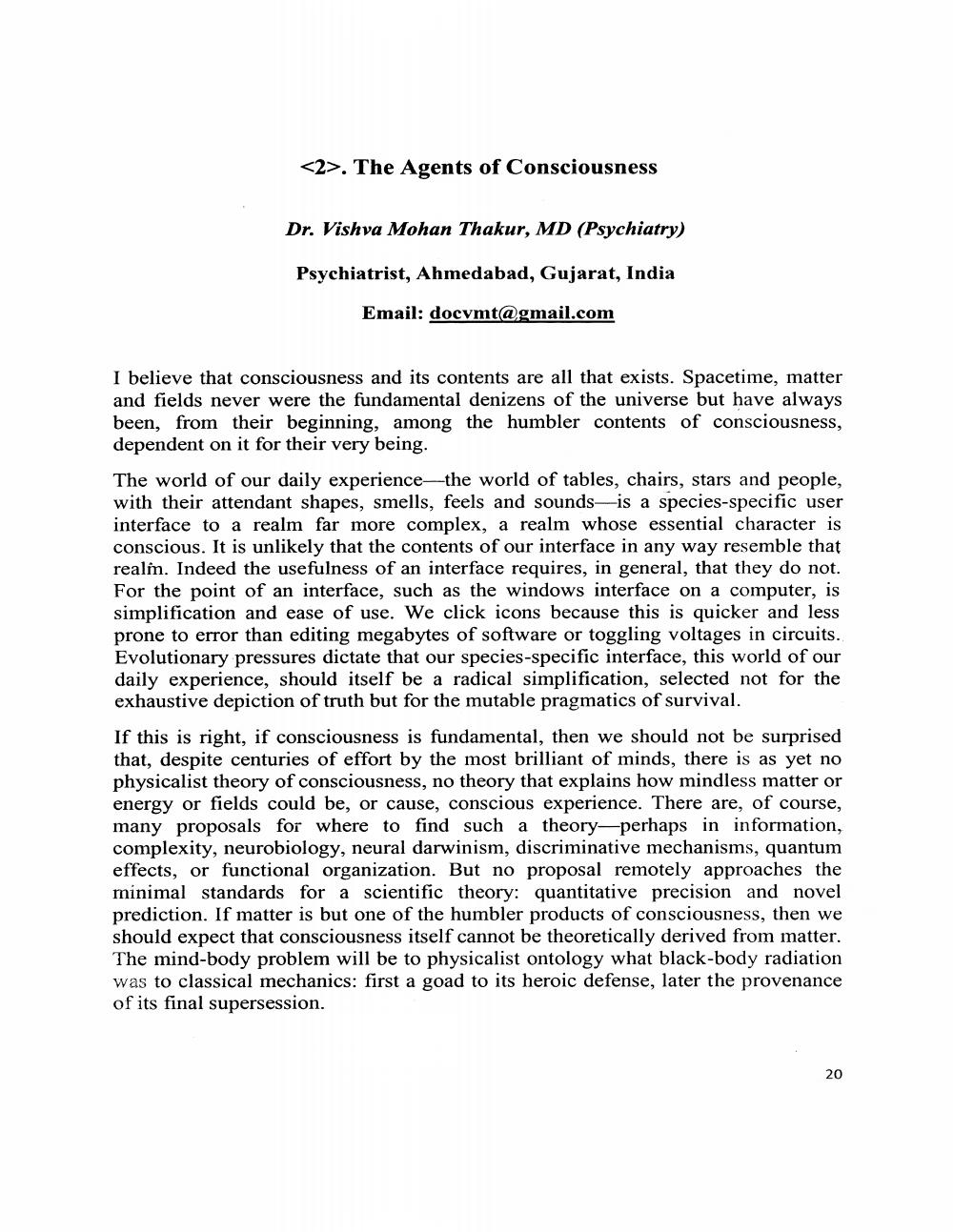________________
<2>. The Agents of Consciousness
Dr. Vishva Mohan Thakur, MD (Psychiatry)
Psychiatrist, Ahmedabad, Gujarat, India
Email:
[email protected]
I believe that consciousness and its contents are all that exists. Spacetime, matter and fields never were the fundamental denizens of the universe but have always been, from their beginning, among the humbler contents of consciousness, dependent on it for their very being. The world of our daily experience the world of tables, chairs, stars and people, with their attendant shapes, smells, feels and sounds—is a species-specific user interface to a realm far more complex, a realm whose essential character is conscious. It is unlikely that the contents of our interface in any way resemble that realm. Indeed the usefulness of an interface requires, in general, that they do not. For the point of an interface, such as the windows interface on a computer, is simplification and ease of use. We click icons because this is quicker and less prone to error than editing megabytes of software or toggling voltages in circuits. Evolutionary pressures dictate that our species-specific interface, this world of our daily experience, should itself be a radical simplification, selected not for the exhaustive depiction of truth but for the mutable pragmatics of survival.
If this is right, if consciousness is fundamental, then we should not be surprised that, despite centuries of effort by the most brilliant of minds, there is as yet no physicalist theory of consciousness, no theory that explains how mindless matter or energy or fields could be, or cause, conscious experience. There are, of course, many proposals for where to find such a theory—perhaps in information, complexity, neurobiology, neural darwinism, discriminative mechanisms, quantum effects, or functional organization. But no proposal remotely approaches the minimal standards for a scientific theory: quantitative precision and novel prediction. If matter is but one of the humbler products of consciousness, then we should expect that consciousness itself cannot be theoretically derived from matter. The mind-body problem will be to physicalist ontology what black-body radiation was to classical mechanics: first a goad to its heroic defense, later the provenance of its final supersession.
